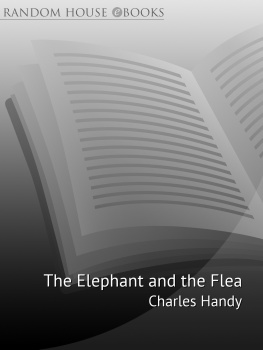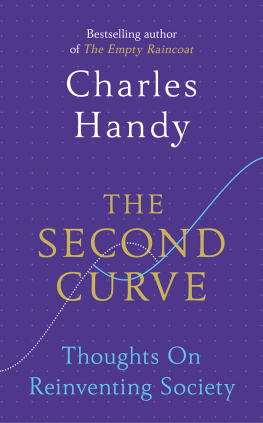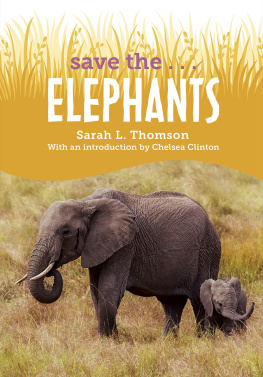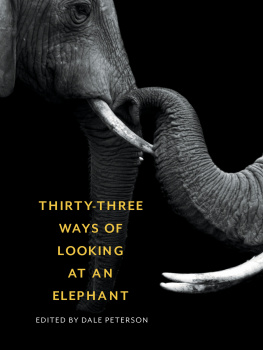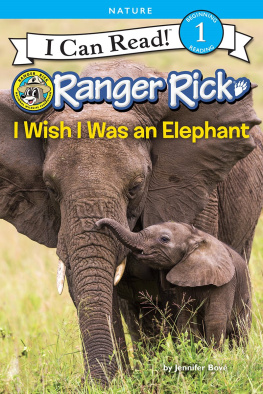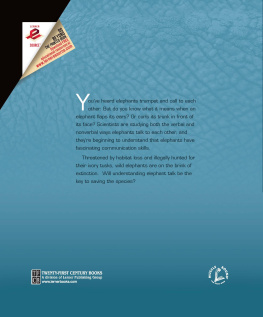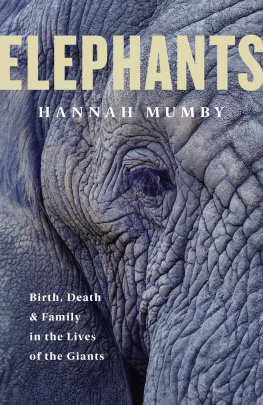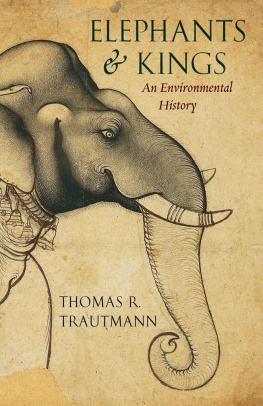About the Book
Bookseller Charles Handys best-selling new book looks at how individuals (the fleas in his analogy) relate to multi-national conglomerates (the elephants). In addition to addressing how and why we work today, he covers a wide range of preoccupations and issues including the increasing fear of big business: it is easy to see why many observers think that the big corporations are now both richer and more powerful than many nation states. They worry that these new corporate states are accountable to no-one that their financial clout makes governments beholden to them ... The elephants, people feel, are out of control.
About the Author
Charles Handy is an independent writer, teacher and broadcaster, known to many for his Thoughts for Today on the BBCs Today programme. He has been in his time, an oil executive, an economist, a professor at the London Business School, the Warden of St Georges House at Windsor Castle and the chairman of the Royal Society for the Encouragement of Arts, Manufacture and Commerce. He was named Business Columnist of the Year in 1994.
Charles Handy was born in Kildare in Ireland, the son of an archdeacon, and educated in Ireland, England (Oxford University) and the USA (Massachusetts Institute of Technology).
His other books published by Arrow include The Age of Unreason, The Hungry Spirit, The Empty Raincoat, Waiting for the Mountain to Move, Beyond Certainty, Gods of Management and Understanding Organizations.
He and his wife Elizabeth, a portrait photographer, live in London, Norfolk and Tuscany.
Also by Charles Handy
The Age of Unreason
The Empty Raincoat
The Hungry Spirit
Gods of Management
Waiting For the Mountain to Move
Understanding Organizations
Understanding Schools as Organizations
Understanding Voluntary Organizations
Inside Organizations
Beyond Certainty: the Changing Worlds of Organizations
PART I
THE FOUNDATIONS
1981: TO START IN THE MIDDLE
I WOKE UP early on the morning of 25 July 1981. It was my forty-ninth birthday. Not usually a landmark event, one might think, but I was drowsily aware that this time the clich was true; today really was going to be the first day of the rest of my life. In six days time I would be unemployed by my own choice. I didnt call it unemployed, of course. I was going portfolio I would say, proudly using the term I had coined a couple of years earlier to describe the kind of life that, I predicted, more and more people would be leading by the end of the century.
It had been foolhardy then, at the start of the Thatcher years in Britain, to prophesy that by the year 2000 less than half of the working population would be in conventional full-time jobs on what are called indefinite period contracts. The rest of us would either be self-employed, or part-timers, perhaps temps of one sort or another, or out of paid work altogether. We would need, I said, a portfolio of different bits and pieces of paid work, or a collection of different clients or customers, if we wanted to earn a living. A full and rich life, however, would be a more complicated portfolio of different categories of work paid work, gift work, study work or learning, plus, for both men and women, the necessary work in the home, cooking, caring and cleaning. The elusive work/life balance would actually be a mixture of different forms of work, seasoned with a touch of leisure and pleasure.
People scoffed; business executives, politicians and academics, all of them. They mocked my comment that househusbands would be a vogue term by the turn of the century. The Thatcher doctrine of enterprise and self-reliance was supposed to create a booming economy with conventional jobs for all who wanted them. If it failed, well, the alternative of the socialist state would do its best to return us to that happy state of full employment, even if it meant using the state as the employer of last resort. It was a debate about ways of getting to an agreed end. The idea that the desired end, the full-employment society, might not be on the cards in the sense of jobs for all was not worth talking about.
I told the doubters of the forty-eight-year-old advertising account executive who was complaining to me that there were no longer any jobs in the ageist advertising world for people like him. While he was talking to me in my home, the electrician repairing our wiring put his head round the door to say that he would be back, but not for a week. Im sorry, he said, seeing my face darken with disappointment, but Ive got too many jobs on at the moment.
That was the future, I told my account executive; lots of electrician-type jobs, meaning customers and clients for the independent worker, but fewer and fewer of his own type of job where you sold your time in advance, usually years in advance, to an organization.
Like him, people listened but chose not to hear. The employee society of the twentieth century had delivered so much that was good secure household incomes for most, a convenient tax-collecting mechanism, a way of parcelling society into boxes so that you knew where people were; and so that individuals also knew where they would be, and what they would be doing in the years to come. The career in an organization, even if it changed once or twice in a lifetime, seemed to be the central bond that kept society from degenerating into a selfish battleground, each for himself and herself and devil take the rest. The very different world I foresaw, however, was fraught with insecurity for most, with uncertainty and fear. We dont want that sort of world people said, and hoped that it would not happen. I sympathized. I, too, didnt much like the sort of world that I saw emerging, but wishing it away was not going to help.
I consoled myself with the observation of the philosopher Arthur Schopenhauer that all truth passes through three stages. First it is ridiculed. Second it is opposed. Third it is accepted as being self-evident.
As it turned out, by the year 2000 the British labour force on those indefinite period contracts in full-time employment had fallen to 40 per cent and the BBC World Service was running programmes on the theme What Future for Men? as women seemed to be runnning everything apart from the old corporations and professions. Full employment had been redefined to mean less than 5 per cent of the self-declared workforce claiming benefit. What the rest were doing or not doing was irrelevant. Already, by 1996, in Britain 67 per cent of British businesses had only one employee, the owner, and in 1994 so-called micro-enterprises employing less than five people made up 89 per cent of all businesses. Putting it more starkly, only 11 per cent of businesses employed more than five people.
Back in 1981, however, I had decided that it was not enough to prophecy. I ought to try to practise what I had been preaching, to find out for myself what it felt like to leave the shelter of organizations and fend for myself, to be what I have come to call a flea, outside the world of the elephants, the big organizations that had been the pillars of the employee society of the twentieth century. The fleas are the independent operators, some of them with small businesses of their own, some working by themselves or in a partnership.
Elephants and fleas is an odd metaphor, equally unflattering to both groups. I hit upon it by chance when looking for a way, in a public lecture, to explain why large organizations needed irritant individuals or groups to introduce the innovations and ideas essential to their survival. After the lecture I was struck by the number of people who came up to me, either proclaiming themselves to be a flea or lamenting the ponderous gait of the elephant where they worked. The analogy, it seemed, had caught their imagination, so I persevered with it. Like all analogies, however, it should not be pushed too far. Useful for attracting attention, it is not in itself a recipe for solutions, but as a broad description of one divide in modern society it serves its purpose.

